Teaching children as they grow is a very engaging and challenging process. Those tiny little hands are always reaching out to grab everything they see. Although this may be a part of their growth and development when they are babies, it is not quite safe for children to come in contact with everything they see. Things like mud, door handles, and food from outside and even toys can be unhygienic and could pose problems in the form of transmittable diseases. Therefore, inculcating healthy habits from a young age is important to ensure that your children remain safe and healthy.
In this article, we shall discuss personal hygiene for kids in details and provide tips to help you teach your kids its importance. Let’s start with the most basic question – why is it required? Read on to know more.
Why Is Personal Hygiene Important for Kids?
Following proper health and hygiene practices for and by children is extremely crucial and helps in keeping germs and diseases at bay. Whenever they touch dusty areas, deadly microorganisms can transfer onto their hands, food and eventually into their stomach and cause diseases.
Certain habits can be practised as a foundation to ensure health and hygiene for kids. The best way to get your child to understand this is by teaching him/her ways to practice from an early age. Here are some common practices that can help in inculcating the best personal hygiene practices in children:
13 Best Healthy Personal Hygiene Habits for Children
1. Food Hygiene for Kids
Unhealthy food habits can cause food poisoning and lead to conditions like diarrhoea, vomiting, or stomach pains. As a parent, you need to ensure hygiene is intact when preparing, serving, or feeding food to your child.
When teaching your child about food hygiene, start with the basics and tell him/her about the germs and bacteria that cause diseases. Let your child understand how these germs can infect their bodies, and spread from their hands to their food. Also, stress upon the habits that can help him/her prevent diseases. Here’s what you can follow and teach your child.
-
Cooking Food: If you’re the one doing most of the cooking, make it a habit to follow these hygiene practices:
- Always use an apron and tie your hair.
- Roll your sleeves up to avoid having grease or stains on your clothes.
- Don’t cough or sneeze into the food, always turn away whenever you have to so as to avoid the food from getting contaminated with germs. Sanitise/wash your hands thoroughly before touching the food again.
- Food Storage: Healthy food habits also include proper storage. Teach your child how to segregate and store food in the refrigerator. Also, inform him/her which foods can be left outside and which must go in the refrigerator. Don’t leave any food uncovered and also keep the lids clean to avoid contracting bacteria.
- Washing hands: Make sure you wash your hands thoroughly and teach your child how to wash his/her hands properly with soap and water. We shall talk a little more on this practice in the next point. Ensure you do this activity before and after every meal. Additionally, provide your child with a clean wiping cloth to wipe his/her hands. The cloth should be washed/changed frequently.

2. Hand Hygiene for Kids
Washing hands frequently can reduce the chances of contracting diseases such as diarrhoea. The simplest way to practise hand hygiene is by teaching your child how to wash hands thoroughly. Show your child a step-by-step demonstration on how to wash hands and ensure he/she get all the steps right.
- Wet your hands with water.
- Apply soap to your hands and rub to form a lather.
- Make sure that your child cleans even in between the fingers and under the nails.
- Wash the soap away entirely with clean water.
Hygiene for kids includes keeping their hands clean at all times. Let your child form a habit of washing his/her hands every time they:
- Use the bathroom
- Play outside
- Clean the house
- Touch an animal
- Meet a sick friend
- Sneeze or cough
- Are about to eat something
- Are done eating their food
3. Sleep Hygiene for Children
Sleep is extremely important for children and adults alike as the body uses this time to regenerate its cells and record memories. Sleep hygiene includes everything that helps your child get a good night’s sleep. It helps you create an ‘awake during the day and resting during the night’ pattern for your child to fit in enough sleep at night so they can remain active during the day. You can also teach the importance of sleep to get your child more interested in learning its benefits.
Your child will need to rest for at least 10 hours every day. Following are a few ways in which you can inculcate good sleeping habits in him/her:
- Avoid letting your child fall asleep at odd hours during the day so that they sleep well at night.
- The bed should only be used for sleeping and not for watching TV or doing homework.
- Create a relaxed environment. You can have dim lights that let your child rest. You can also try singing a lullaby.
- Keep gadgets and alarms away from children to avoid waking them up.
- Put your child to bed every day at a fixed time.

4. Vocal Hygiene for Children
These are a set of methods you and your child can use to help him/her get a modulated voice. Most children can develop a habit of shouting a lot. If they aren’t given attention and are ignored; your child’s vocal cords can experience excessive stress and get damaged. Here’s how you can help your child understand and deal with vocal hygiene:
- Keep your child hydrated by giving him/her enough water to drink every day.
- Avoid giving your child cold drinks or ice creams often.
- Encourage your child to speak in one tone during a conversation.
- Kids can sometimes clear their throat, affecting the way they sound. Always discourage them from doing so.
- Keep them from shouting or whispering too much as it stresses the vocal cords.
5. Oral Hygiene
It is also important that you take care of your child’s mouth and teeth. Without proper care, your child can develop cavities, bad breath, and other oral diseases. Although baby teeth fall out eventually, they help your child chew food and also assist in speech development. Here are some ways you can keep your child’s teeth healthy:
- Make sure that your child brushes his/her teeth at least two times a day.
- Always use a child’s toothbrush as they’re smaller and also soft on the developing gums.
- In the first 12 months, only wipe the child’s gums with a clean cloth. When the first set of teeth appear, wipe the surface gently with a toothbrush and some water.
- Let your child start using toothpaste when they are around two years old.
- Sweet food shouldn’t be left to linger around the teeth for too long as it can cause cavities.
- If the child has wiggly teeth by the age of 6, let him/her wiggle the tooth so that it falls off without much pain or bleeding.
If you are wondering how you could teach your little one to bush his/her teeth, here’s some information that can help you teach your child the right way of brushing teeth. In the beginning, brush their teeth yourself and slowly teach them the right way to do it.
- Keep the brush angled at 45 degrees to your child’s gums.
- Move the brush back and forth gently.
- Brush all the surfaces of your child’s teeth (outer, inner and chewing areas).
- To clean the inner surface thoroughly, you can hold the brush vertically and move it up and down.
- Brush the tongue to remove any bacteria.

You can also include the use of dental floss to ensure that your child stays away from cavities.
- Take about 18 inches of floss and wrap both ends of it on either of your middle fingers.
- Hold the floss between your thumb and forefingers and insert the floss inside your child’s teeth.
- While holding the floss in a C-shape, gently rub the floss while keeping it pressed against the tooth.
- Make sure that you floss all the teeth and get the jaw teeth too.
7. Hair Care
Poor hair hygiene in your child can cause problems like dandruff, lice, and infections of the scalp. Your child can get these when playing with his/her friends or other kids in his/her surroundings. To avoid this, your child should be taught to take care of his/her hair and scalp.
- Wash your child’s hair at least two times in a week to keep the hair free from grease and dirt.
- When your child is old enough to wash his/her hair, supervise or assist him/her in applying the shampoo and rinsing with water.
- If your child has head lice, make sure you treat it immediately.
- If your child has long hair, encourage her to keep the hair tied up mostly to avoid them from getting dirty.
- Teach your child to avoid sharing his/her comb, pillow, hats or caps with other children.
8. Nail Hygiene
Children’s nails accumulate a lot of dirt and microbes as they often play outside and in the sand, mud or simply dirty grounds. Children and adults alike use their limbs extensively, which causes nails to get injured or contaminated. Use the following tips to inculcate nail hygiene in your child:
- Kids tend to bite their nails. Discourage them from doing so as they can end up ingesting the microbes present under their nails.
- Cut your child’s nails frequently.
- Teach your child to scrub and wash under his/her nails thoroughly to ensure that they are clean at all times.
- Help your child to wash his/her hands every time they pet an animal, play outside, cough or sneeze, and before and after eating.
- Also, pay attention to your child’s toenails and cut them regularly.
9. Bathing Hygiene
The best way to keep your child clean and healthy at all times is by giving him/her a bath regularly. Some bath hygiene habits include:
- Teaching your child to bathe twice in a day – before they go to school and after they come back.
- Encourage him/her to gently scrub the armpits, groin, legs, and feet.
- Ensure that they apply soap every time they take a shower.
- Keep an eye to see that your child takes extra care when cleaning his/her face as the facial skin is more delicate.
10. Foot Hygiene
When bacteria acts along with sweat on your child’s feet, they can get smelly. This happens if your child wears shoes all day, especially without socks. This causes a lot of dirt and bacteria to get accumulated on your child’s feet. Some personal hygiene habits for kids can help keep these smelly feet away:


![Falcon Chair [Free Footrest Worth $150]](http://ergoworks.com.sg/cdn/shop/files/FalconChair.png?v=1766720283&width=104)

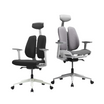
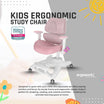


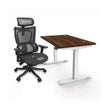
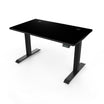
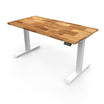
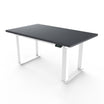
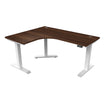
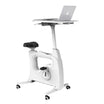
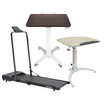

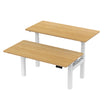
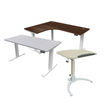
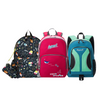
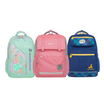


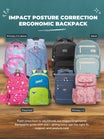
![Impact Ergonomic Kids Study Desk [Length Options Available]](http://ergoworks.com.sg/cdn/shop/files/KidDeskMainImageFinal.png?v=1764215536&width=104)
![Impact Ergonomic Kids Desk & Chair Set [FREE Spindle bookshelf & Eye Care Lamp Worth $318.90] [Chair & Length Options Available]](http://ergoworks.com.sg/cdn/shop/files/Kids_Desk_Nov_Promo_Square_Shopify.jpg?v=1761955288&width=104)

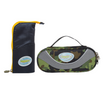
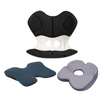
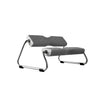
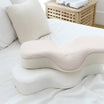
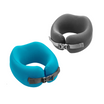
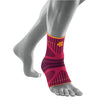
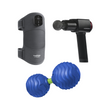

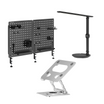
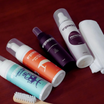
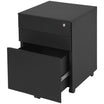
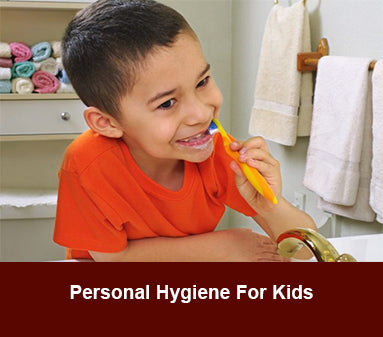

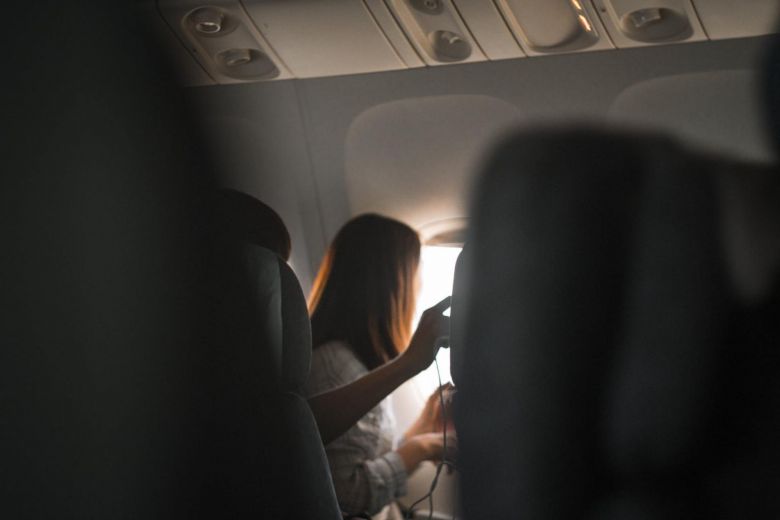
Leave a comment
This site is protected by hCaptcha and the hCaptcha Privacy Policy and Terms of Service apply.